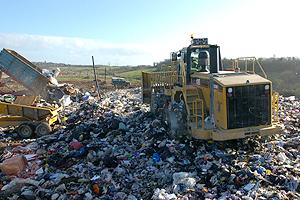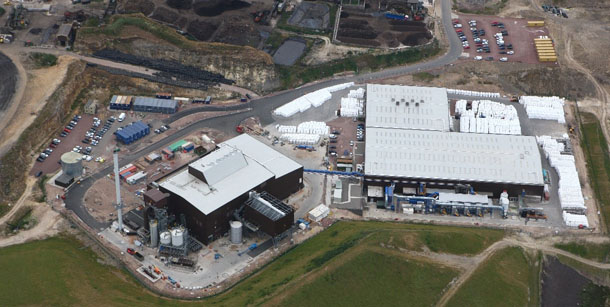Industry experts have warned that government confidence over achieving EU Landfill Diversion targets – illustrated by the withdrawal of PFI-funding for large-scale projects – must not lead to complacency among councils.
Speaking to letsrecycle.com, trade bodies Environmental Services Association (ESA) and the National Association of Waste Disposal Officers (NAWDO) stated that continued progress should not be used an excuse for local authorities to reduce their efforts.
In making the announcement, the government stated that “on reasonable assumptions, [the projects] will no longer be needed to meet landfill diversion targets set by the European Union”. It said that it had assessed “economic and risk forecasts” to support this decision (see letsrecycle.com story).
This came after the department claimed in September 2010 that the UK had achieved its 2010 landfill diversion target and that England had only landfilled 14.6 million tonnes of BMW against its 2010 goal of 21.7 million tonnes (see letsrecycle.com story).
The figures suggest that England would have to reduce its landfilling of BMW by just 449,000 tonnes over the next three years to meet its 2013 target.
While Defra said it was unable to verify these figures, there is a growing feeling has already entered the waste management sector that the 2010 – and possibly the 2013 – targets have already been achieved.
Paul Taylor, chief executive of waste management firm Waste Recycling Group, told letsrecycle.com: “It looks to me like the UK has already met the 2013 target.”
Complacency
This feeling of optimism among government and industry has caused trade bodies to voice concern over slowing of progress as the targets near. An ESA spokesman told letsrecycle.com: “This [progress] should not be used as an excuse to delay continued investment in new recycling and waste management infrastructure.
“The revised Waste Framework Directive requires the UK to manage its wastes as high up the waste hierarchy as possible and new infrastructure will be needed to meet this requirement as well as the more stringent 2020 target for landfill diversion.”
These sentiments were echoed by John Woodruff, chair of NAWDO, who said that a growing belief among industry experts that the goal is achievable – if it has not already been achieved – should not lead to a sudden stagnation in recycling efforts.
He said: “The last thing we won't is for people to act like they have done it and say, we won't push that planning permission through and for the sake of six months we miss it and we could each probably get away with that but when we are contributing to a bigger effort we simply can't.”
Factors
Mr Woodruff said that the recession had played a large role in the UK nearing its ambition. He said: “I think an awful lot of it is recession. And, we have to take into account the impact that will have had on our overall waste tonnages.
“It started when the credit crunch started and it was failing quite steadily, and if we think that it fell 3% last year and 3% again this year along with achieving a little bit higher on recycling, then we don't need to be scared of 2012/13. There is an awful of lot infrastructure in the pipeline aimed at 2013.”
Defra's confidence in meeting the targets contrasts with the pessimism that characterised the sector in late 2008 and early 2009. Questions had been raised over whether the goal for 2013 could actually be achieved with a Defra waste strategy board document published in September 2008 suggesting that the target was likely to be missed if the then-current rate of recycling was not improved (see letsrecycle.com story).
Furthermore, a survey of leading waste industry experts undertaken by legal firm Norton Rose in September 2009, with 69% of respondents stating that the UK would fail to achieve the 2013 goal (see letsrecycle.com story).
Performance
The UK faces a series of targets in which it has to meet a set level for landfilling biodegradable municipal waste based on reductions of 1995 levels. The targets the UK has to achieve are landfilling less than 26.7 million tonnes of BMW in 2010, 17.844 million tonnes in 2013 and 12.491 million tonnes in 2020.
These targets relate to the changed definition of ‘municipal waste', which Defra is considering broadening to include more commercial waste in order to reflect the definition used by EU Member States. However, a Defra spokesman said a definitive decision on this was “unlikely” until the ongoing review of waste policy was completed in April 2011.









Subscribe for free